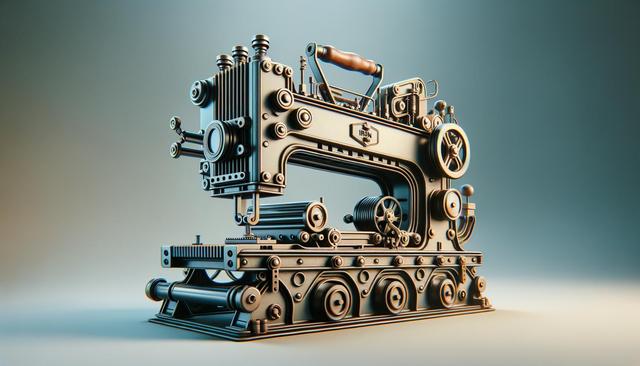What is an Iron Machine?
An iron machine, often referred to as a steam iron or garment press, is a household or industrial appliance designed to remove wrinkles from clothing and fabrics. These machines use heat, pressure, and sometimes steam to flatten textiles, ensuring garments look tidy and professionally finished. Over time, iron machines have evolved from basic metal tools to sophisticated appliances with digital controls, adjustable settings, and safety features. Most models are engineered to work efficiently on a wide variety of fabrics, from delicate silks to durable cottons.
Modern iron machines typically feature adjustable temperature settings, steam burst functions, and ergonomic designs for ease of use. Some are equipped with ceramic or stainless steel soleplates, which glide smoothly over fabric and distribute heat evenly. Additionally, many models include features such as anti-drip systems, automatic shut-off functions, and self-cleaning mechanisms to extend their lifespan and ensure safe operation.
Types of Iron Machines and Their Applications
There are several types of iron machines available, each suited for particular needs. Understanding the differences between these types can help users select the right appliance for their home or business.
- Dry Irons: Basic irons that use heat without steam. Ideal for simple, quick touch-ups on low-moisture fabrics.
- Steam Irons: Equipped with water tanks that produce steam to relax fabric fibers. Effective for more stubborn wrinkles.
- Garment Steamers: Vertical devices that use hot steam to de-wrinkle hanging clothes. Convenient for delicate or structured garments.
- Ironing Presses: Larger, commercial-style machines that press garments flat with minimal effort. Commonly used in laundromats and tailoring shops.
Each type has its own advantages. For example, steam irons are generally more versatile for household use, while ironing presses are more efficient in handling large volumes of clothing.
Key Features to Consider When Choosing an Iron Machine
Selecting the right iron machine depends on several factors, including usage frequency, fabric types, and personal preferences. Some important features to evaluate include:
- Temperature Control: Adjustable settings allow users to match the heat level to the fabric type, reducing the risk of damage.
- Steam Output: Higher steam output can be helpful for thick or heavily wrinkled materials.
- Soleplate Material: Ceramic, non-stick, or stainless steel plates offer different gliding and heat distribution benefits.
- Water Tank Capacity: Larger tanks reduce the need for frequent refills during use.
- Safety Features: Auto shut-off and anti-drip functions improve safety and ease of use.
When choosing an iron machine, it’s also important to consider the weight and handle design, especially for prolonged use. Lightweight models with comfortable grips can reduce fatigue during extended ironing sessions.
Maintenance and Safety Tips
Proper maintenance of an iron machine ensures optimal performance and longevity. Regular upkeep also helps prevent issues such as mineral buildup, leaks, or uneven heating. Some general maintenance practices include:
- Emptying the water tank after each use to prevent mold and bacteria growth.
- Using distilled water to reduce mineral deposits and scale buildup.
- Cleaning the soleplate periodically with a damp cloth or specialized cleaner.
- Checking the cord and plug for wear or damage to avoid electrical hazards.
In terms of safety, always place the iron on a heat-resistant surface and never leave it unattended while plugged in. Most newer models include automatic shut-off features for added safety, which turns the machine off if left idle for a certain period. Allowing the iron to cool down completely before storing it can also prevent accidental burns or fire hazards.
Iron Machines in Commercial Settings
In addition to household use, iron machines are widely used in commercial environments such as laundromats, hotels, dry cleaners, and clothing factories. In these settings, efficiency and durability are key. Industrial-grade iron machines are built to withstand frequent use and often come with advanced features like larger pressing surfaces, continuous steam generation, and automatic fabric sensors.
Commercial establishments often invest in high-capacity ironing systems to streamline operations and improve garment presentation. For instance, a hotel might use a steam press system to prepare bed linens and uniforms quickly, while a tailoring shop may rely on precision irons for finishing bespoke garments.
Using iron machines in business settings also helps maintain a professional appearance, which can impact customer satisfaction and brand reputation. For small businesses, selecting the right model can balance performance with cost-effectiveness, ensuring both quality and productivity without excessive overhead costs.




Leave a Reply